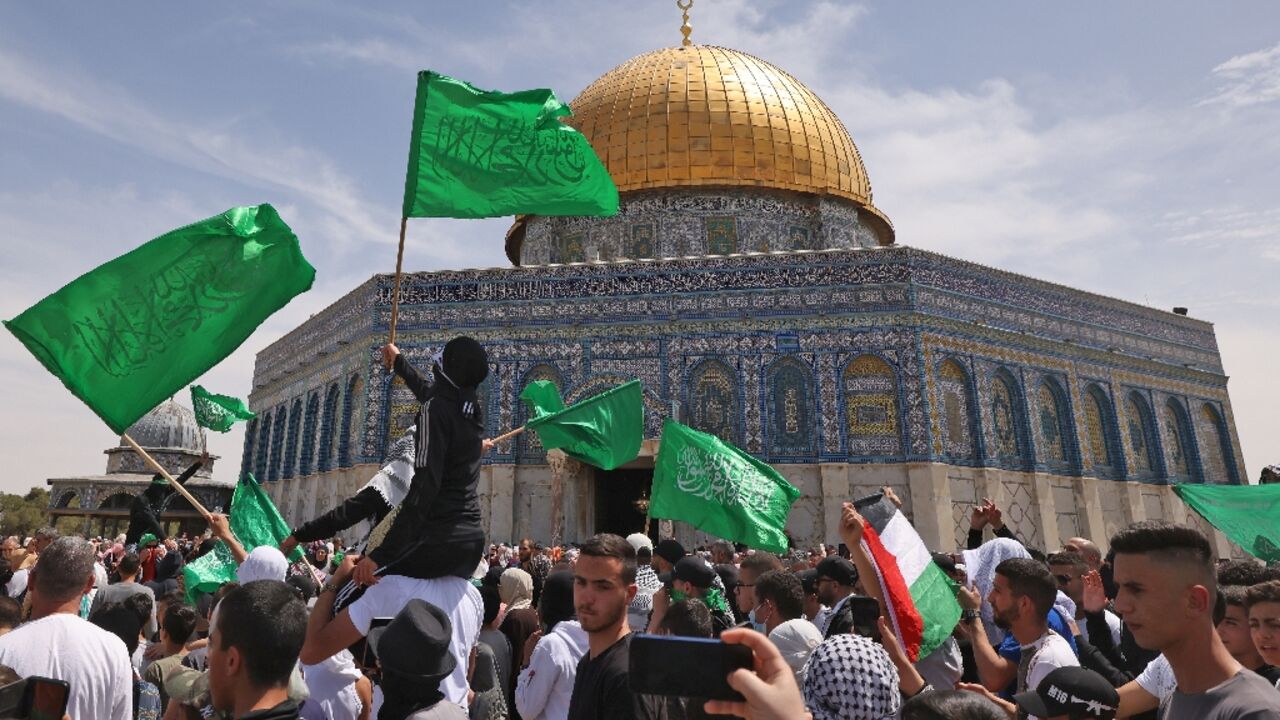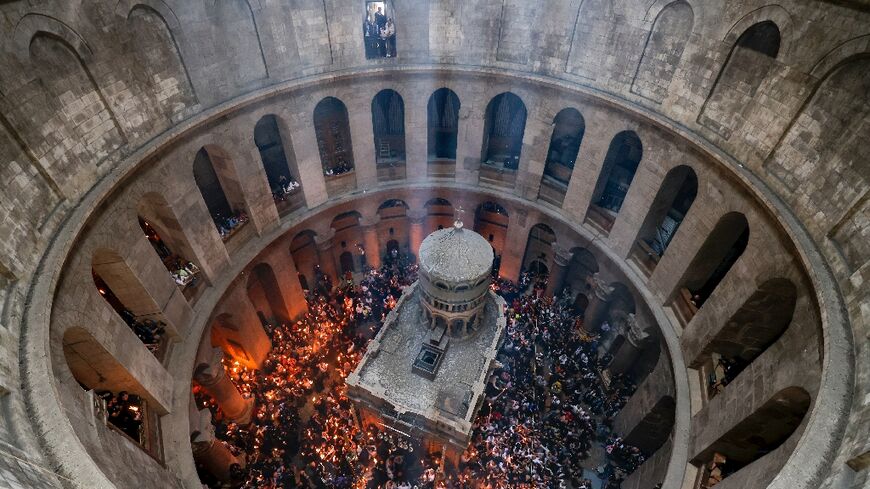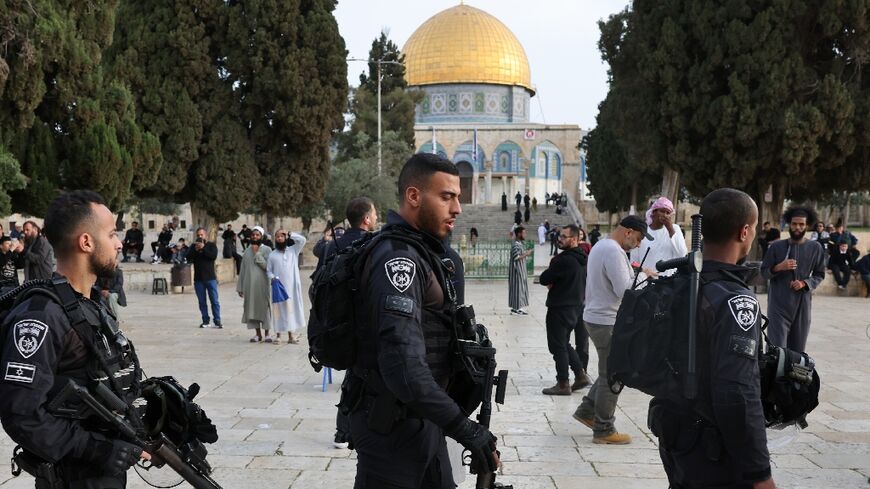Israel closes crossing to Gazans after new rocket attacks

Israel said it will close its only crossing from the Gaza Strip for workers on Sunday in response to overnight rocket fire, stopping short of conducting retaliatory strikes in an apparent bid to ease tensions.
The rocket attacks on Friday night and Saturday morning followed days of clashes at Jerusalem's flashpoint Al-Aqsa mosque compound and a month of deadly violence.
The unrest -- which comes as the Jewish festival of Passover overlaps with the holy Muslim fasting month of Ramadan -- has sparked fears of a wider conflict, one year after similar violence led to an 11-day war between Israel and Gaza-based militants.
"Following the rockets fired toward Israeli territory from the Gaza Strip last night, it was decided that crossings into Israel for Gazan merchants and workers through the Erez Crossing will not be permitted this upcoming Sunday," said COGAT, a unit of the Israeli defence ministry responsible for Palestinian civil affairs.
Two rockets were fired from Gaza at southern Israel on Friday night, one of them reaching Israeli territory, the other falling short and striking near a residential building in northern Gaza, sources on both sides said.
A third rocket was fired at Israel on Saturday morning, the army said, with no air raid sirens activated for any of the launches.
They followed rocket attacks on Wednesday and Thursday, and came as Israeli police clashed with Palestinian protesters at Al-Aqsa mosque, leaving at least one man in hospital in serious condition.
Israel had retaliated against those attacks with air strikes, but in an apparent desire to prevent further violence, shifted its response this time to the painful economic measure of closing Erez, implying that further rockets would extend the penalty.
"The re-opening of the crossing will be decided in accordance with a security situational assessment," COGAT said.
Employment in Israel is a lifeline for people in Gaza, where according to a recent World Bank report nearly half of the 2.3 million population is unemployed.
There are currently 12,000 Gazans with permits to work in Israel, and the government recently announcing its intention to add another 8,000.
- 'Incitement' -
More than 200 people, mostly Palestinians, have been wounded in clashes in and around Al-Aqsa in the past week.
Palestinians have been outraged by massive Israeli police deployment and repeated visits by Jews to the holy site.
Early on Friday, the Palestinian Red Crescent said 57 people were wounded after police stormed the compound in Israeli-annexed east Jerusalem when Palestinians began hurling stones towards the adjacent Western Wall, the holiest site where Jews can pray.
After midday prayers, some Muslim worshippers chanted "incitement" and tried to damage a police post, police said. A drone was used to spray tear gas from the air, AFP correspondents reported.
Saturday morning prayers, however, passed without incident, with Israeli officials estimating that 16,000 Muslims took part.
Al-Aqsa is Islam's third-holiest site, and the most sacred site for Jews, who refer to it as the Temple Mount.
By long-standing convention, Jews are allowed to visit under certain conditions but are not allowed to pray inside.
A short distance from Al-Aqsa in Jerusalem's Old City, thousands of Orthodox Christians celebrated the Holy Fire ceremony at the Church of the Holy Sepulchre, after two years of smaller events due to the Covid pandemic.
Anthony Botros said that being able to participate in the ceremony was "honestly surreal."
"I would not have imagined I would ever be here. It's something you can't describe, you just have to be there and experience it. Just tears. So peaceful," the 25-year-old Canadian told AFP.
The Orthodox Patriarchate and police had agreed to limit the number of worshippers to 4,000 inside the church and in the square outside.
Israel has tightened restrictions on numbers for all religious festivals after a stampede at a Jewish festival last April caused the death of 45 men and boys.
The escalating unrest prompted concern at the United Nations, which on Thursday demanded a probe into the actions of Israeli police.
"The use of force by Israeli police resulting in widespread injuries among worshippers and staff in and around the Al-Aqsa mosque compound must be promptly, impartially, independently and transparently investigated," said Ravina Shamdasani, spokeswoman for the UN Office of the High Commissioner for Human Rights.
The unrest in Jerusalem stirred emotions among Israel's Arab population, with hundreds marching in the Arab-Israeli city of Umm al-Fahm.
Police said they had arrested four masked men in Umm al-Fahm who had "fired flares, thrown stones at security forces and burnt tyres on the main road".









